Soda ash, also called sodium carbonate, is very important. It is a safe and white powder with no smell. Soda ash is used in many ways. More than half of it is used to make glass. In 2023, the glass industry used 55% of all soda ash made. Soda ash is also in soaps, detergents, and medicines. It helps control pH levels and boosts chemical reactions. This makes it very useful in these areas. Wholesale soda ash light, wholesale soda ash dense.
1. Glass Manufacturing

Role in Glass Production
Soda ash is very important in making glass. It helps lower the heat needed to melt silica, which is the main part of glass. This means factories use less energy and make less pollution. Soda ash makes the process better and helps the environment.
Benefits
Using soda ash has many good points. First, it makes glass clearer and stronger by removing bad stuff. Second, it saves energy because it lowers how hot things need to get. This cuts costs and helps keep the planet clean. These reasons make soda ash a must-have for making great glass.
Share: The glass industry consumes about 50% of the global sodium carbonate production.
2. Detergents and Cleaning Products
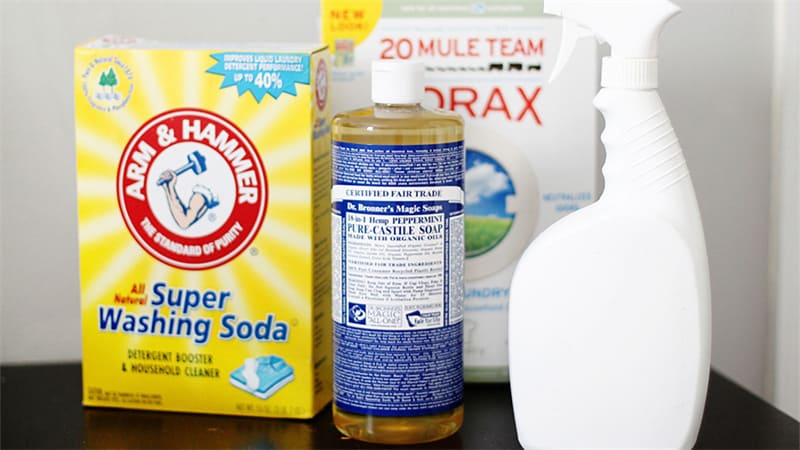
Use in Detergents
Soda ash is important for making detergents. It helps soften water by grabbing minerals like calcium. This makes the detergent work better on dirt. Soda ash also keeps the pH level just right. This helps break down tough stains, like grease.
Benefits
Adding soda ash to detergents has many good points. First, it makes cleaning stronger. It helps mix oily stains with water, so they wash away easily. Second, soda ash is safer for nature than phosphates. Phosphates can hurt fish and plants in water. Using soda ash means cleaner clothes and a cleaner planet.
3. Environmental Uses
Cleaning Air and Water
Soda ash helps clean air from factories. It balances pH and stops bad gases. This makes the air cleaner. In water, soda ash fixes lakes hurt by acid rain. It raises pH to help nature.
Good Points
Using soda ash for the environment has many upsides:
- Cuts Pollution: Soda ash stops bad gases, so less pollution goes into the air. This means cleaner air and better places to live.
- Helps Water Life: Soda ash makes water less acidic, helping lakes recover from acid rain damage. This helps plants and animals in water thrive.
Soda ash is a green choice compared to other cleaners. Its natural way of being made is kinder to Earth, making it a good pick for industries wanting to be eco-friendly.
4. Textile Industry

Dyeing Processes
Soda ash is key in dyeing clothes. It works well with cotton to make bright colors. The high pH of soda ash helps colors stick. This keeps them from fading fast. It lets dyes bond better with fibers. This makes fabrics look nicer.
Benefits
Using soda ash in dyeing has many perks:
- Bright and Long-lasting Colors: Soda ash keeps colors bright and fade-resistant. Clothes stay nice even after many washes.
- Cost-Saving Dyeing Method: You can reuse soda ash, saving money for makers. Less waste means lower costs, good for big factories.
Soda ash’s job isn’t just dyeing. It also cleans cloth before dyeing by removing oil and grease. This cleaning step makes sure the fabric is ready for even coloring, improving the final product quality.
5. Food and Medicines
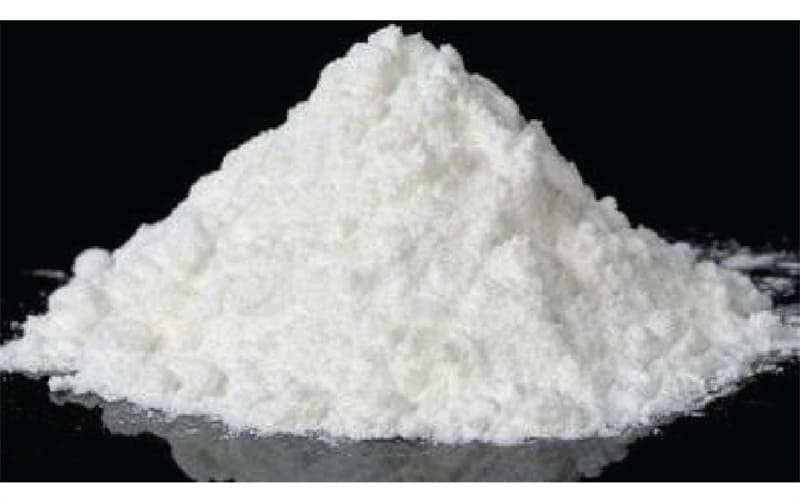
Uses in Food
Soda ash is important for food. It helps sweeteners and preservatives work well for a long time. In baking, soda ash makes dough rise. This gives us light and fluffy bread. It mixes with acids to make gas, which puffs up the dough. Bakers use it to get good results every time.
Uses in Medicines
In medicines, soda ash does many things. It is in antacids that help with heartburn by calming stomach acid. Soda ash keeps medicines stable and working right. It balances pH levels in drugs, making them more effective.
Expert Opinion:
“More soda ash is used now in medicine making. It keeps the right pH level, helping medicines stay strong and work well.”
This makes soda ash very useful in food and medicine, helping make top-quality products that meet standards.
6. Chemical Production
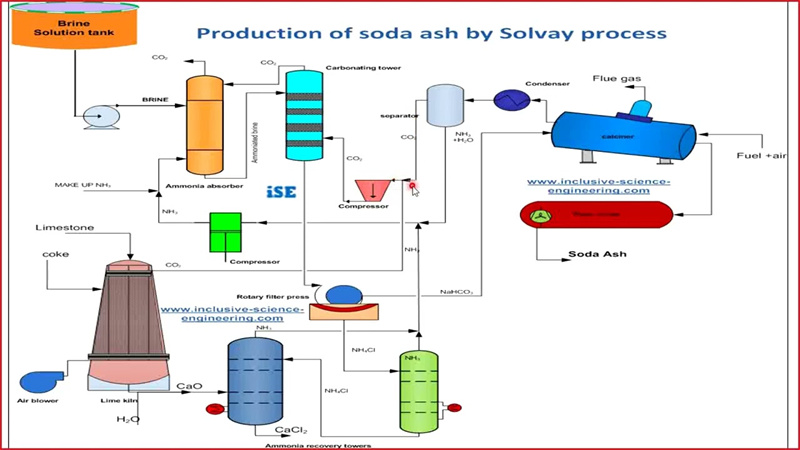
Soda ash is widely used to produce essential chemical compounds such as sodium silicate (water glass), sodium bicarbonate (baking soda), trisodium phosphate, and borax. These compounds play critical roles in industries like detergents, food, glass, ceramics, and construction materials. Through reactions with silica or carbon dioxide, soda ash easily transforms into various important intermediates.
Advantages
- Versatility: As a strong alkaline raw material, soda ash plays a central role in numerous chemical reactions, enabling the production of various key compounds.
- Cost-Effectiveness: With abundant natural or synthetic sources and low production costs, soda ash is an economically viable base chemical.
- Environmental Benefits: Its exceptional absorption and neutralization capabilities make it a valuable tool for sulfur removal and wastewater treatment, contributing to sustainability goals.
- High Reactivity: Soda ash reacts efficiently under low-energy conditions, facilitating fast and effective chemical transformations.
7. Metallurgical industry
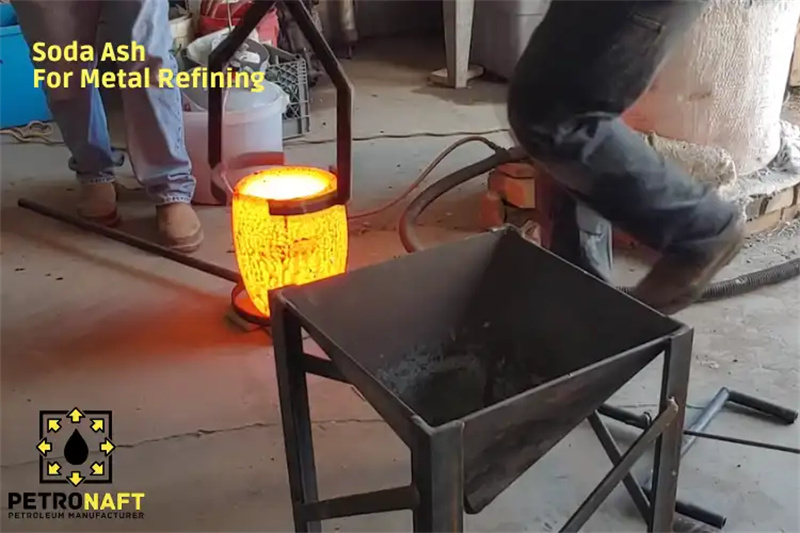
Soda ash (sodium carbonate, Na₂CO₃) plays a crucial role in the metallurgical industry due to its versatility and efficiency. It is widely used as a flux to lower the melting point of ores and remove impurities like sulfur and phosphorus during steelmaking. By forming stable by-products with these impurities, soda ash helps improve the quality of the final metal product. Additionally, it enhances the fluidity of molten metal, reducing energy consumption and operational costs.
In aluminum production (Bayer process), soda ash is employed to regulate the alkalinity of the solution, facilitating the extraction of alumina from bauxite. Similarly, in copper, nickel, and cobalt smelting, soda ash acts as a flux, aiding in the reduction of metal oxides and improving metal recovery rates. In precious metal refining, it helps remove silicate impurities, making the extraction of gold and silver more efficient.
Advantage
Compared to other flux materials like limestone, soda ash offers significant advantages.
- It lowers energy requirements due to its ability to reduce melting points effectively.
- Its mild chemical nature ensures less corrosion to equipment, leading to lower maintenance costs.
- Moreover, soda ash generates less environmental pollution compared to other chemical alternatives, making it a more sustainable choice in metallurgical processes.
8. Pulp and Paper Industry
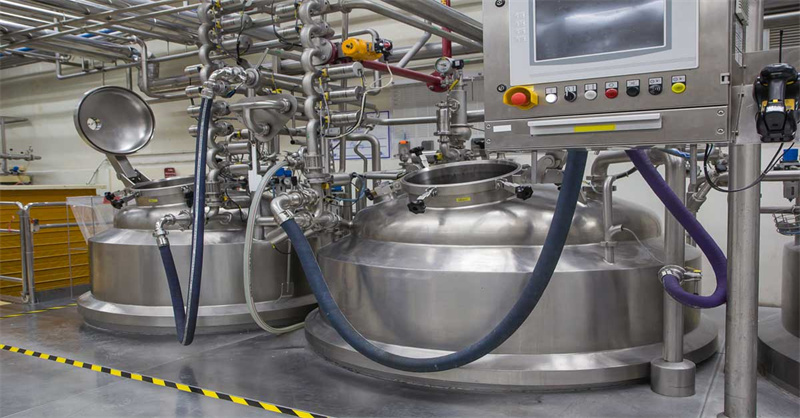
Soda ash (sodium carbonate, Na₂CO₃) is a key chemical in the pulp and paper industry, primarily used in processes such as pulp production, bleaching, and chemical recovery. It plays an essential role in maintaining the alkalinity of the pulp-making process, which is critical for effective lignin removal and improving the quality of the final paper product.
In the Kraft pulping process, soda ash is involved in regenerating cooking chemicals like sodium hydroxide. It also serves as a buffering agent during bleaching, helping to stabilize the process and optimize the brightness of the paper. Additionally, soda ash is used in effluent treatment to neutralize acidic waste streams, ensuring environmental compliance.
Advantages
- Cost-Effective: Soda ash is an affordable and readily available source of alkalinity compared to other chemical alternatives like caustic soda.
- Efficient Chemical Recovery: It supports the recovery and regeneration of alkali chemicals in Kraft and other chemical pulping processes, reducing the need for new raw materials.
- Enhanced Process Stability: As a buffering agent, soda ash helps maintain a stable pH, ensuring consistent bleaching and reducing the risk of over-bleaching or damage to fibers.
- Improved Paper Quality: By optimizing the removal of lignin and impurities, soda ash contributes to the production of brighter, cleaner paper products.
- Environmental Benefits: Soda ash aids in the treatment of acidic effluents, ensuring compliance with environmental regulations and minimizing the industry’s ecological footprint.
9. Water Treatment Applications
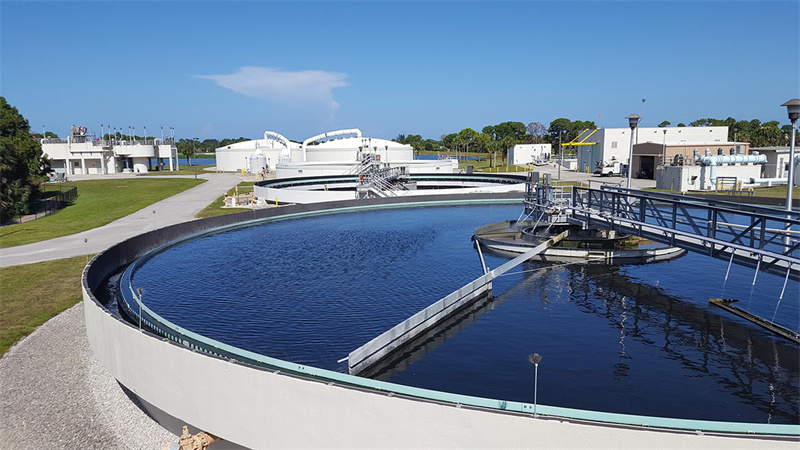
Soda ash (sodium carbonate, Na₂CO₃) is extensively used in water treatment processes to adjust pH, soften water, and neutralize acidity. Its alkalinity makes it an effective agent for balancing the pH of water, which is crucial for industrial, municipal, and even residential water systems.
Advantage
- Effective Alkalinity Source: Provides a stable and efficient means of increasing water pH compared to alternatives like lime.
- Cost-Effective: Soda ash is affordable and widely available, making it a cost-efficient choice for large-scale water treatment applications.
- Easy Handling: It is safer and easier to handle than some other chemicals like caustic soda, reducing risks in storage and application.
- Improved Equipment Longevity: By neutralizing acidity and softening water, soda ash protects piping and equipment from corrosion and scale buildup, reducing maintenance costs.
- Environmentally Friendly: Its neutralization process produces benign by-products, making it an environmentally sustainable option for water treatment.
- Versatile Application: Soda ash can be used in a variety of water treatment scenarios, including industrial processes, municipal water supplies, and household systems.
Last Word
Soda ash is important in many industries. It is used to make glass, detergents, and chemicals. Soda ash helps clean water and reduce pollution. This shows how useful it is. Factories are finding new ways to make soda ash better for the environment. Soda ash helps both factories and nature. As we move forward, soda ash stays key in industry and protecting nature.
Maybe you want:
